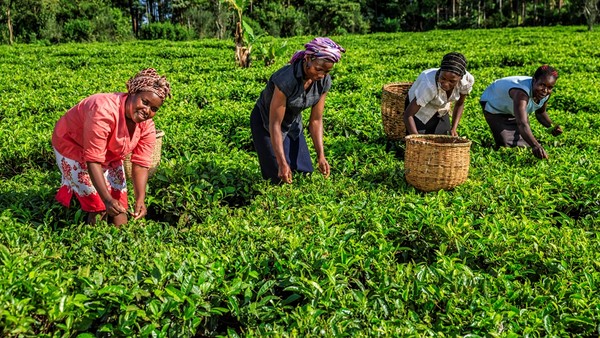
Agriculture in Africa: the Nairobi event
During a meeting organized by FAO, the speakers pointed out that the use of mechanical means, applied to the specific local characteristics of the land, and environmentally and economically sustainable, can reduce poverty and ensure food security, encouraging a necessary generational change
More than one hundred experts on agricultural issues and food, together with operators representing 27 African countries, are meeting in Nairobi (Kenya) to discuss agricultural mechanization and how it can help improve the condition of small farms in Sub-Saharan Africa. As pointed out by the analysts during the discussions, the use of mechanical means can bring with it a reduction in the intensity of operations, a more efficient use of production factors, and a greater sustainability of the processes and crops (including in terms of weather and the environment). This makes a vital contribution not only to increasing productivity in agriculture, but also in improving agricultural income. Moreover, in the face of a progressive aging of agricultural entrepreneurs in many African countries - including Kenya - mechanization can play a crucial role in involving young people and make them an active part of the production process, both in the agricultural sector and in food. These are the issues addressed at the meeting entitled “Consultative Meeting on a Mechanization Strategy for Africa” promoted to review progress on sustainable agricultural mechanization in sub-Saharan Africa. Organized by FAO in collaboration - among others - with the World Bank, the Alliance for a Green Revolution in Africa (AGRA), the African Conservation Tillage Network (ACT), the Meeting was attended by public decision-makers, academics, representatives of financial institutions, private investors, farmers’ organizations, and national, regional and international bodies, who thus had the chance to share experiences, knowledge and best practices aimed at sustainable mechanization in Sub-Saharan Africa. But, above all, they debated the strategies to be followed, putting the spotlight on partnerships between private individuals and between the public and private sectors.
“The fight against poverty, as well as the one against food insecurity, depends on the sustainability and growth of the agricultural sector, which, in turn, is the basis for an equally sustainable social and economic development,” commented the representative of the Kenyan Ministry of Agriculture, Nkanya, inaugurating the three-day meeting. “The growth of the agricultural sector - added Robert Allport, FAO Representative in Kenya - depends totally on innovation”. “In agriculture, innovation is mainly linked to mechanization. Yet - continued Allport - when we speak of mechanization we must not think only of machines, but also of financial instruments that allow farmers to buy mechanical devices already on the market.
If we expand the fields in which we innovate and if we can innovate the entire value chain, then we can change the way of farming in the region and improve the food supply of Africans.”
However, as was emphasized by the various speakers, Sub-Saharan Africa’s agricultural mechanization must be able to adapt to the characteristics of the different regions, as there are no universal solutions; i.e. solutions that can be applied in any of the regions - often very different - in which African farmers have to operate.
However, after taking into account the specificities of each reality, the use of mechanical means must meet the criteria of environmental and economic sustainability, and should also consider the new conditions determined by climate change.
The meeting ended with an agreement to assign to FAO, in collaboration with its partners, the preparation of a “concept note” concerning the strategies to promote sustainable mechanization in Africa.
The document, which should indicate the measures to be taken by identifying specific responsibilities and expertise, will be submitted in 2017 for approval by the Commission of the African Union.








